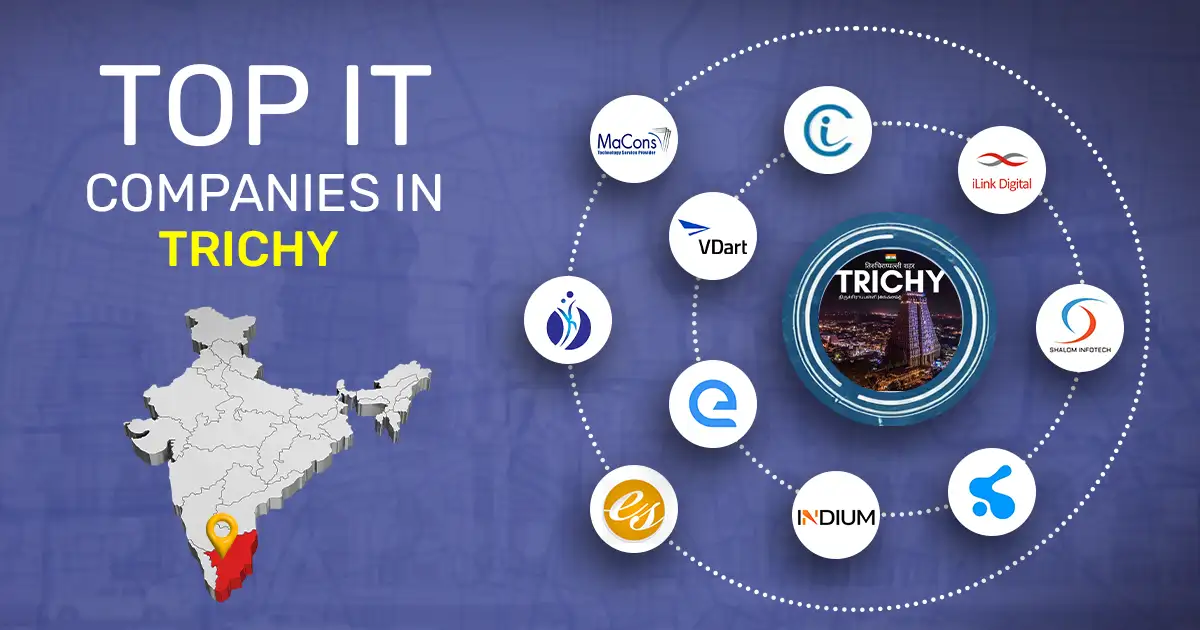
Top Profitable Business Opportunities in Dubai for 2026
Dubai has always been a land of opportunity, and in 2026, it’s more vibrant than ever. With its futuristic skyline, world-class infrastructure, and a strategic location connecting East and West, Dubai isn’t just a city; it’s a global business hub. Add in tax-friendly policies, innovative free zones, and government-backed initiatives to fuel entrepreneurship, and it’s clear why entrepreneurs from around the world are looking for business opportunities in Dubai.
If you’ve been dreaming of starting a profitable venture, Dubai offers the perfect launchpad. This blog will take you through the most lucrative business opportunities in Dubai in 2026, the sectors primed for growth, and practical steps on how to start a business in Dubai. From understanding market trends to navigating legal formalities, you’ll get a clear roadmap to kickstart your Dubai journey with confidence.
Explore Dubai’s top business opportunities and turn your vision into success in this dynamic global hub.
How is Dubai a Prime Destination for Business in 2026?
Dubai remains a leading global business hub in 2026, attracting entrepreneurs, investors, and multinational corporations. Its strategic location, investor-friendly policies, and modern infrastructure make it ideal for business growth. This section highlights the key factors driving the emirate’s appeal and the challenges to consider before setting up a business in Dubai.
1. Strategic Location & Global Connectivity
Situated at the crossroads of Asia, Europe, and Africa, Dubai offers unmatched access to emerging and established markets. World-class airports, seaports, and logistics networks support trade, tourism, and digital services, making it a gateway for global expansion.
2. Government Policies, Free Zones & Tax Advantages
Dubai’s free zones offer 100% foreign ownership, tax exemptions, and streamlined licensing, while government initiatives reduce bureaucracy and encourage investment.
Note: a federal corporate tax of 9% applies to many businesses, though some free zones maintain incentives.
As of 2023–25, the UAE introduced a federal corporate tax of 9% for many businesses, though free zones may still offer specific incentives.
For guidance on setting up in a free zone, check Business Setup in Dubai Free Zone.
3. Growing Sectors & Emerging Trends
Dubai’s economy is rapidly evolving. Post-COVID recovery, digitalization, and the shift toward sustainability have created booming opportunities. Key growth sectors include:
- E-commerce
- Fintech
- Health technology
- Green energy
- Logistics
- Luxury tourism
Smart city initiatives, AI integration, and renewable energy projects further create avenues for innovative entrepreneurs to capitalize on online business opportunities in Dubai and other futuristic sectors.
4. Market & Demographics
Dubai offers a diverse, affluent, and cosmopolitan market, with over 200 nationalities and millions of annual tourists, creating strong demand for a wide range of goods and services. Businesses can cater to both niche and mass-market audiences, from luxury products to tech-driven solutions.
Entrepreneurs can choose from three business formation options, Mainland, Free Zone, and Offshore, to suit their strategic needs. Ensure to consider all criteria before finalizing the business structure for a company registration in Dubai.
With its thriving economy, global connectivity, and investor-friendly environment, Dubai presents an exceptional opportunity to launch and grow a successful business.
Business Setups: Mainland, Free Zone & Offshore
Dubai offers three main business formation options, each catering to different types of entrepreneurs:
- Mainland: Best for businesses targeting the local UAE market. Mainland companies may require a UAE national as a local partner (holding 51% shares) unless the sector allows 100% foreign ownership. They can operate anywhere in Dubai, trade with local customers, and bid for government contracts.
- Free Zone: Ideal for export-oriented businesses, IT, media, e-commerce, and consultancy services. Free-zone companies offer 100% foreign ownership, tax exemptions, and simplified registration processes, but are usually limited to operations within the free zone or international markets.
- Offshore: Designed for international trade, asset management, or holding companies. Offshore companies cannot conduct business directly in the UAE but benefit from privacy, low costs, and easy international transactions.
Key Challenges to Be Aware Of
While Dubai offers tremendous opportunities, it is not without challenges. Intense competition, rising office and operational costs, and navigating legal and regulatory requirements can pose hurdles for new businesses. Entrepreneurs must understand licensing rules, visa regulations, sector-specific approvals, and compliance obligations to ensure sustainable growth and avoid setbacks.
What are the Most Profitable Business Opportunities in Dubai for 2026?
In 2026, certain sectors are expected to see exceptional growth due to rising consumer demand and technological advancements. Government initiatives supporting innovation and sustainability will further drive this expansion.
1. E-commerce & Online Retail
Selling products online through platforms like Shopify, Amazon, Noon, or Namshi, targeting both local and international customers.
Key entry points:
- Niche products such as sustainable fashion, electronics, or gourmet foods
- Setting up localized online stores or partnering with existing platforms
Major considerations:
- Logistics and supply chain management
- Customer service and returns handling
- Compliance with UAE e-commerce regulations
2. Digital Marketing & Social Media Services
Offering services like SEO, content marketing, social media management, and paid advertising campaigns.
Key entry points:
- Tailoring digital marketing services for local SMEs
- Leveraging AI tools for personalized campaigns
Major considerations:
- Keeping up with algorithm changes on social platforms
- Understanding local advertising and content regulations
3. Logistics & Last-Mile Delivery Services
Handling the final stage of delivery from warehouses to end customers, including courier, express, and same-day delivery services.
Key entry points:
- Partnering with e-commerce platforms
- Implementing eco-friendly or tech-driven delivery solutions
Major considerations:
- Infrastructure investment and fleet management
- Ensuring timely deliveries and high customer satisfaction
4. Green Energy & Sustainability Solutions
Providing renewable energy solutions (solar panels, recycling, energy audits) and sustainability consultancy.
Why it’s profitable now: Dubai has ambitious renewable energy targets, attracting global investment in solar and sustainability initiatives.
Key entry points:
- Solar panel installation services
- Energy efficiency audits for commercial and residential buildings
Major considerations:
- Navigating government regulations and incentives
- Ensuring quality and certified installations
5. Healthcare & Wellness
Providing services like telemedicine, home healthcare, wellness centers, and preventive care programs.
Key entry points:
- Launching telehealth platforms or wellness apps
- Establishing specialized wellness centers
Major considerations:
- Obtaining necessary healthcare licenses
- Compliance with medical regulations and patient privacy laws
6. Tourism & Hospitality Adjacent Services
Offering experiential tours, niche accommodations, travel concierge, and adventure activities.
Why it’s profitable now: Dubai’s tourism sector is booming, creating strong demand for unique and personalized travel experiences.
Key entry points:
- Collaborating with hotels and travel agencies
- Developing themed or luxury tour packages
Major considerations:
- Meeting tourism licensing requirements
- Building strong local partnerships
7. FinTech & Blockchain / Crypto-Friendly Services
Providing digital financial services, blockchain solutions, and cryptocurrency-related platforms.
Key entry points:
- Crypto payment gateways and wallets
- Blockchain consulting for enterprises
Major considerations:
- Regulatory compliance and licensing
- Cybersecurity and data protection
8. Real Estate Services & Property Management
Managing properties, providing real estate consultancy, and facilitating investments in emerging districts.
Why it’s profitable now: High rental yields in areas like Downtown Dubai and Palm Jumeirah outperform many global cities.
Key entry points:
- Focus on emerging districts with potential growth
- Offering value-added services like tenant management
Major considerations:
- Understanding local real estate laws and market trends
- Networking with property developers and investors
9. Food & Beverage
Operating cloud kitchens, healthy food brands, specialty cuisines, or food delivery services.
Key entry points:
- Launching delivery-only kitchens
- Catering to niche dietary preferences
Major considerations:
- Food safety and hygiene compliance
- Efficient delivery and supply chain management
10. Education & Training
Offering corporate training, vocational skill development, and online learning platforms.
Why it’s profitable now: Dubai is emerging as a global education hub, with remote learning and professional skill development in high demand.
Key entry points:
- Developing e-learning courses or corporate training modules
- Partnering with businesses for employee upskilling
Major considerations:
- Course accreditation and certifications
- Keeping content updated with industry trends
These sectors demonstrate diverse options for entrepreneurs, ranging from small business opportunities in Dubai to international ventures. Dubai has a sector for everyone, including business opportunities in Dubai with low investment to large-scale setups.
How to Choose a Profitable Business in Dubai?
Dubai has emerged as a global hub for business due to its strategic location, investor-friendly policies, and growing economy. However, selecting the right business requires careful planning and research. This section guides entrepreneurs on key factors to consider before launching a venture in Dubai.
1. Market Research & Validating Demand
Understanding the market is crucial for business success. Conducting thorough research helps identify gaps, customer preferences, and emerging trends. Key steps include:
- Analyzing the demand for your product or service through surveys, focus groups, or online tools.
- Evaluating competitors and understanding their strengths, weaknesses, and pricing strategies.
- Studying local consumer behavior, cultural preferences, and seasonal trends to tailor offerings effectively.
2. Legal & Regulatory Setup: Mainland vs Free-zone vs Offshore
Dubai offers multiple business structures, each with specific legal and operational frameworks. Learn more at How to Start a Business in Dubai.
- Mainland: Suitable for businesses targeting the local market; may require a local sponsor or partner holding 51% shares.
- Free-zone: Ideal for export-oriented businesses; offers 100% foreign ownership, tax exemptions, and simplified procedures.
- Offshore: Primarily for international trade, asset management, or holding companies; cannot conduct business directly within the UAE.
Choosing the right setup impacts licensing, taxation, ownership rights, and operational flexibility.
3. Cost & Capital Considerations
Financial planning ensures sustainable growth. Evaluate:
- Initial setup costs include license fees, office space, visas, and permits.
- Operational expenses such as staff salaries, utilities, logistics, and marketing.
- Working capital requirements and contingency funds to manage unexpected costs.
4. Local Partner/Sponsorship Requirements (if any)
Certain business structures in Dubai require local sponsorship or partnership:
- Mainland businesses often require a UAE national as a local partner (51% ownership).
- Free-zone and offshore setups usually allow 100% foreign ownership with no sponsor required.
Understanding these requirements is vital to avoiding legal complications and ensuring smooth business operations.
5. Exit Strategy / Scalability and Sustainability
Planning for growth and potential exit is essential for long-term profitability:
- Define strategies for scaling operations, expanding product lines, or entering new markets.
- Consider potential exit options such as selling the business, mergers, or franchising.
- Evaluate sustainability factors, including economic trends, regulatory changes, and technological advancements.
By considering these factors, entrepreneurs can identify the best new business opportunities in Dubai and pursue them with confidence.
How Do You Start a Business in Dubai?
Setting up a business in Dubai requires careful planning, legal compliance, financial preparation, and understanding of the local market. This section covers practical steps and considerations for entrepreneurs to ensure a smooth entry and sustainable operations.
Business Structure & Licensing Steps in Dubai
Dubai offers multiple business structures, each with distinct legal requirements and licensing processes:
- Mainland: Registered with the Department of Economic Development (DED). Best for businesses serving the local UAE market. May require a UAE national as a local partner (51% ownership). License types vary depending on business activity (trading, professional, or industrial).
- Free-zone: Approved by the respective free-zone authority. Suitable for export-oriented, e-commerce, consultancy, or IT businesses. Offers 100% foreign ownership, tax incentives, and simplified setup procedures.
- Offshore: Registered through offshore authorities for international trading, asset holding, or investment purposes. Cannot conduct business directly within the UAE, but facilitates global operations.
Licensing Steps:
- Reserve a trade name.
- Obtain initial approvals based on business activity.
- Submit required documents (passport copies, business plan, lease agreement).
- Receive a business license and start operations.
2. Free-Zone vs Mainland vs Offshore – Which Suits Which Business?
Selecting the right jurisdiction depends on the target market, business activity, and ownership preferences:
- Mainland: Ideal for retail, trading, hospitality, and service businesses targeting UAE residents. Provides full access to the local market but may involve a local sponsor.
- Free-zone: Suited for e-commerce, IT, media, consultancy, and export businesses. Provides 100% ownership, tax-free operations, and easy repatriation of profits.
- Offshore: Best for international trading, investment holding, or intellectual property management. Cannot trade directly within the UAE, but allows international business activities.
Key Considerations:
- Market access and customer base
- Ownership flexibility
- Tax incentives and compliance requirements
- Ease of registration and ongoing administration
Cost Breakdown: License, Office/Virtual Office, Visas, Staff
Understanding the financial requirements is critical for budgeting and operational planning:
- License Fees: Varies based on business type, structure, and jurisdiction.
- Office Space or Virtual Office: Free-zones often provide cost-effective options; mainland businesses require physical office space for certain licenses.
- Visas: Includes investor visas, employee visas, and dependent visas. Costs differ based on free-zone or mainland registration.
- Staff Salaries: Must comply with UAE labor regulations; consider recruitment, insurance, and other employee benefits.
- Other Expenses: Insurance, utilities, marketing, and compliance fees.
4. Banking, Currency, and Repatriation of Profits
Efficient financial management is key to sustaining operations:
- Open a corporate bank account in the UAE banks that suit your business structure.
- Manage currency and exchange rates for international transactions.
- Free-zone and offshore businesses usually allow full repatriation of profits. Mainland businesses may have some regulatory requirements depending on the sector.
- Consider payment gateways, online banking, and merchant accounts for smooth financial operations.
Dubai offers multiple business structures: Mainland, Free-zone, and Offshore. You can also explore flexible setups, such as a Virtual Office in Dubai for cost-effective operations.
Why Partner with RegisterKaro for Your Dubai Business Setup?
Setting up a business in Dubai can be complex, especially for Indian and foreign entrepreneurs navigating local regulations, licensing, and operational requirements. RegisterKaro simplifies the entire process, offering expert guidance from start to finish.
- Business Structure & Entity Selection: Help choose the right jurisdiction, mainland, free-zone, or offshore, based on your business goals and target market.
- Registration & Licensing Support: Handle all documentation, approvals, and compliance requirements to ensure smooth license issuance.
- Compliance & Operations Assistance: Support with banking, visas, local sponsorships, and ongoing regulatory compliance.
- End-to-End Guidance: From business registration to marketing and operational strategies, RegisterKaro ensures entrepreneurs focus on growth rather than paperwork.
USP: “From registration to compliance — simplified.” RegisterKaro provides a seamless, stress-free business setup experience tailored for Dubai’s dynamic market.
For personalized guidance and support in setting up your Dubai business, contact RegisterKaro.
Frequently Asked Questions
The minimum capital depends on the business type and jurisdiction. For many free-zone setups, the requirement can be as low as AED 1,000–50,000 (approx. Rs. 22,000–11,00,000). Mainland businesses may require higher capital based on licensing and regulatory needs. Accurate budgeting is essential to avoid delays.




